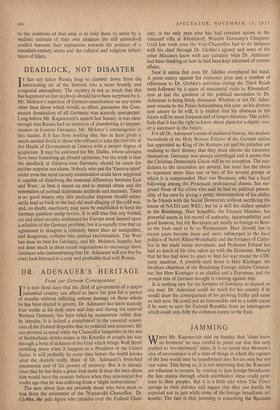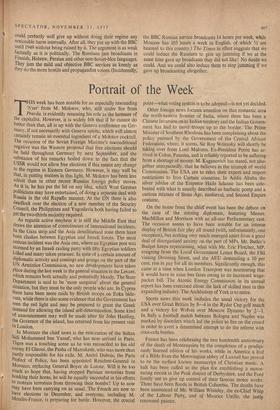JAMMING
WHEN Mr. Kaganovich said op Sunday that 'ideas knov. no frontiers' he was careful to point out that this only applied to 'revolutionary' ideas. It is no secret that Moscow's idea of co-existence is of a state of things in which the regimes of the free world may be transformed into Soviet ones but not vice versa. This being so. it is not surprising that the Russians are reluctant to reopen, by ceasing to jam foreign broadcasts. the last cranny through which unorthodox ideas could pene- trate to their peoples. But it is a little odd when The Times springs to their defence and argues that they can hardly be expected not to jam while some of the foreign broadcasts are hostile. The fact is that jamming is something the Russians could perfectly well give up without doing their regime any noticeable harm internally. After all, they put up with the BBC until 1949 without being ruined by it. The argument is as weak factually as it is politically. The Russians jam broadcasts in Finnish, Hebrew, Persian and other non-Soviet-bloc languages. They jam the mild and objective BBC services as keenly as they do the more hostile and propagandist voices. (Incidentally. the BBC Russian service broadcasts 14 hours per week, while Moscow has 103 hours a week in English, of which 31 are beamed to this country.) The Times in effect suggests that we could induce the Russians to give up jamming if we at the same time gave up broadcasts they did not like ! No doubt we could. And we could also induce them to stop jamming if we gave up broadcasting altogether.



































 Previous page
Previous page